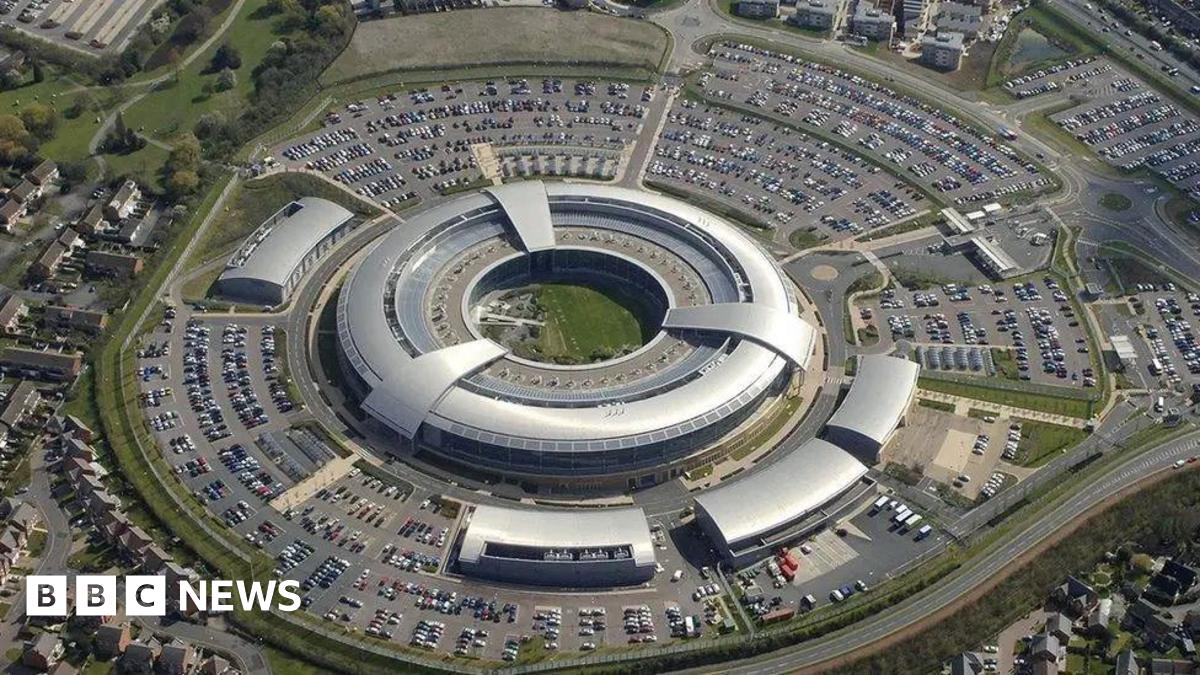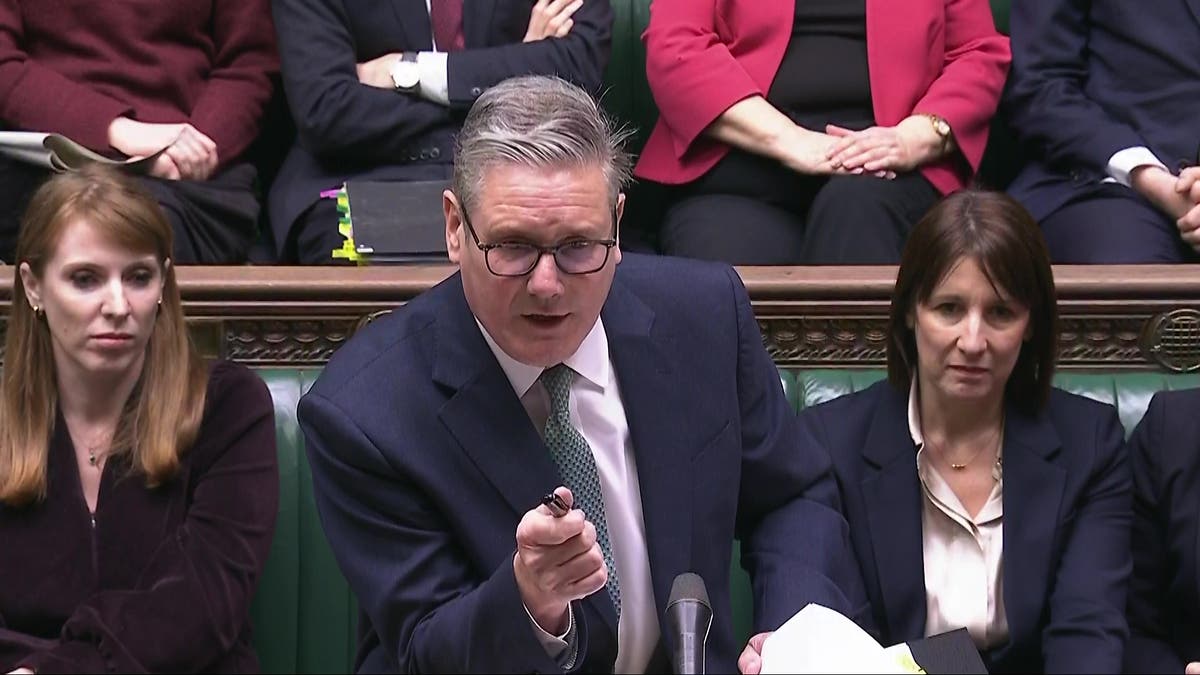World
UK general election: Rishi Sunak calls July 4 vote — follow live

Rishi Sunak has announced a general election for July 4.
The prime minister addressed the nation from outside No 10 this afternoon and pledged to “fight for every vote”. Follow live.
John Swinney, Scotland’s first minister and the leader of the Scottish National Party, said calling an election for the first week of the summer holidays shows “the contempt the Tories have for Scotland”.
He said: “This is perhaps the latest act of disrespect from a Conservative government to call an election during the Scottish summer school holidays. There will be schools in Scotland on holiday by the time polling day comes and that will not have been given a moment’s thought by the Tory election planners.”
• SNP’s finances in dire straits as Labour takes the lead
Cabinet ministers questioned election timing
Two cabinet ministers expressed reservations about calling an early election when Rishi Sunak announced his plan to them today (Steven Swinford writes).
Esther McVey, a minister in the Cabinet Office, said Sunak would be better off waiting for an improved economic outlook to filter through to the public. Chris Heaton-Harris, the Northern Ireland secretary, said he would not have made the same decision but was fully supportive.
Explaining his decision, Sunak told colleagues that it was important for the Conservatives to be bold and to “own” the narrative.
Lib Dems will be ‘local champions’
Sir Ed Davey accused the Conservatives of taking people for granted
ANDREW MATTHEWS/PA
Sir Ed Davey, the Liberal Democrat leader, has launched his party’s general election campaign in Michael Gove’s Surrey constituency, where he said his candidates would be “local champions”.
He said: “Across the country, people are crying out for change and this election is the chance to make that happen. In so many parts of the country it’s the Liberal Democrats who can beat the Conservatives, who have taken people for granted for so long.”
The Lib Dems are likely to run highly localised campaigns in a handful of Blue Wall seats where they believe they can unseat the Conservative incumbents. Davey said: “Every vote for the Liberal Democrats is a vote for a local champion — an MP who will fight for you, your family and your community to get the fair deal that you so deserve.”
• Ed Davey interview: ‘Being a carer is harder than being a politician’
Sunak’s gamble explained
Rishi Sunak is not renowned for taking risks (Steven Swinford and Oliver Wright write). His approach as prime minister has been about calming nerves and instilling stability after Liz Truss’s disastrous 49-day tenure as prime minister.
All of this makes his decision to call a general election in just over six weeks seem inexplicable. So why has he decided to go now?
Royal family to postpone events
The royal family is to postpone engagements “which may appear to divert attention or distract from the election campaign”, Buckingham Palace has announced.
The Palace said: “Following the prime minister’s statement this afternoon calling a general election, the royal family will, in accordance with normal procedure, postpone engagements that may appear to divert attention or distract from the election campaign. Their majesties send their sincere apologies to any of those who may be affected as a result.”
Starmer promises to ‘rebuild Britain’

Sir Keir Starmer said a vote for Labour would be “a vote for change”
UK PARLIAMENT/AFP/GETTY IMAGES
Sir Keir Starmer urged people to vote Labour to “stop the chaos” and told the country “it’s time for a change”.
He promised a politics that “treads more lightly on people’s lives” as he sought to tap into public exhaustion with years of Westminster drama.
“After 14 years under the Tories, nothing seems to work any more,” Starmer said. He described “sewage in our rivers, people waiting on trolleys in A&E, crime virtually unpunished, mortgages and food prices through the roof”.
He insisted: “A vote for Labour is a vote to turn the page on all that, a vote for change.”
Pointing out that he “came into politics late in life” after running the Crown Prosecution Service, Starmer said he could overcome public cynicism. “Together we can stop the chaos,” he said. “We can turn the page, we can start to rebuild Britain and change our country.”
• What are Labour’s six pledges? Inside Keir Starmer’s election plan
• Keir Starmer interview: my plans to reform our broken NHS
Summer precedent is good for Labour

Clement Attlee, centre, celebrates his 1945 landslide
CENTRAL PRESS/GETTY IMAGES
The last time a UK general election was held in July was in 1945 — when Labour defeated Winston Churchill’s Conservatives in a landslide victory.
The vote took place on July 5, and the result was announced three weeks later. Labour won 393 seats while the Tories secured just 197, one of the biggest electoral swings of the twentieth century.
Churchill was confident his party would win due to his wartime success, but Labour appealed to many voters with its promises of social reform.
Where are the parties in the polls?
Between now and the general election, The Times will be combining voting intention data from more than a dozen pollsters to produce a clear picture on how each party is being received by the public.
Read more from Tom Calver, data editor, in our poll tracker.
Analysis: Prime minister paints a gloomy picture
After trying on various different narratives for his government, in the end Rishi Sunak made the classic election pitch for a Tory government: you may not love us, but don’t risk the other lot (Chris Smyth writes).
Under lowering skies, Sunak painted a gloomy picture of a world “more dangerous than it has been since the end of the Cold War”, with Britain threatened at home and abroad.
The aim was to present himself as the man who will keep the nation safe: “I will forever do everything in my power to provide you with the strongest possible protection I can.”
This too was Sunak’s economic pitch, as he sought to make a virtue of the fact that “it might still be hard when you look at your bank balance”. He said: “Only a Conservative government led by me will not put our hard-earned economic stability at risk.”
Sunak began by reminding voters of the furlough scheme, for which he first came to public prominence and became the most popular politician in the country as chancellor during the pandemic. The aim was to show that “when we work together, anything is possible”. The risk is it only showed just how far Sunak’s standing has fallen.
Sunak kicks off the campaign
Rishi Sunak has called a general election for July 4, kicking off a campaign in which both major parties — and a range of minor parties and independents — will vie for your vote.
The prime minister will go head-to-head with Sir Keir Starmer, the Labour leader, who is coming up against a Conservative government that has been in power for 14 years.
Sunak said: “Earlier today I spoke with His Majesty the King to request the dissolution of parliament. The King has granted this request and we will have a general election July 4.
“This election will take place at a time when the world is more dangerous than it has been since the end of the Cold War.”
In announcing the date for the general election outside No 10, Sunak said: “We’ve tackled inflation, controlled debt, cut workers’ taxes, and increased the state pension by £900. We’ve reduced taxes on investment and seized the opportunities of Brexit to make this the best country in the world to grow a business, put record amounts of funding into our NHS and ensured it is now training the doctors and nurses it needs in the decades to come.”
Sunak’s statement drowned out

Sunak gave his statement in the rain outside No 10
CARL COURT/GETTY IMAGES
The prime minister began his address by referencing his achievements as chancellor during the Covid pandemic.
He was almost drowned out, however, a protester playing “Things can only get better” in Whitehall.
Rishi Sunak said the country was facing a “generational defining moment” in 2020 at the outset of the pandemic. In the last five years, the country has “fought through the most challenging time” since the Second World War.
Sunak said that upon taking office as prime minister his main aim was to “restore economic stability” and after “collective sacrifice” that stability had been delivered.
A summer general election will prompt a “fair few” Conservative MPs to announce that they are standing down, a Tory peer has said.
Lord Barwell, who served as chief of staff in No 10 during Theresa May’s premiership, said an exodus of Tory MPs in the coming days would not be an “ideal start” for the Conservative campaign.
• Why MPs are quitting parliament — the ‘chicken run’ in charts
He wrote on Twitter/X: “If Rishi Sunak does indeed call an election today, I suspect the first few days of the campaign are going to see a fair few Conservative MPs announce they are standing down. Not an ideal start, but an inevitable consequence of going early.”
July election clashes with school holidays
An election on July 4 could cause controversy in Scotland and Northern Ireland, as it falls at the start of the school summer holidays (Max Kendix writes).
The date would be the first or second Thursday of the summer holidays for most parents in those nations, whereas in England and Wales they start in late July.
Bills will be rushed through or abandoned

Significant government business going through parliament may have to be dropped or heavily amended
HOUSE OF COMMONS/UK PARLIAMENT/PA
Before a general election there must be a period of “wash up”, where legislation making its way through parliament is either passed or abandoned (Max Kendix writes).
There are 28 bills that would have to be resolved, including 16 government bills. Hugely consequential laws may be approved within days under this process, as bills with cross-party consensus get sign-off. If faced with too much opposition, they may be dropped or heavily amended.
Bills in the system include: the Sentencing Bill, which would scrap short prison sentences; the Criminal Justice Bill, which includes several measures on police powers; the Renters Reform Bill, which aims to strengthen the rights of tenants; a bill to approve the leg of HS2 between Crewe and Manchester; the Tobacco and Vapes Bill, which would make smoking illegal for those born before 2009; and the Football Governance Bill, which would introduce a state regulator for the sport.
An election on July 4 means parliament would be dissolved on May 30 — and cancelling recess, which would have started tomorrow.
Ministers arrive at No 10

Laura Trott, chief secretary to the Treasury, was the second to arrive
STEFAN ROUSSEAU/PA
Ministers avoided questions from the press as they arrived at No 10 for the cabinet meeting.
Grant Shapps, the defence secretary, was the first cabinet minister to arrive at No 10. He was followed soon after by Laura Trott, the chief secretary to the Treasury, Claire Coutinho, the energy security secretary, and Victoria Atkins, the health secretary.
Chris Heaton-Harris, the Northern Ireland secretary, who is stepping down as an MP at the next general election, has also arrived.

Chris Heaton-Harris, the Northern Ireland secretary, is stepping down as an MP at the election
MAJA SMIEJKOWSKA/REUTERS
He was followed by Andrew Mitchell, deputy foreign secretary, and Johnny Mercer, the veterans minister.
The cabinet meeting was scheduled to begin at 4.15pm.
July election would defy strategists
If Rishi Sunak does decide to call a July election he will be doing so against the advice of Tory strategists, who have long favoured an autumn election (Oliver Wright writes).
Issac Levido, who will run the Tory campaign, has always argued that the Conservatives’ best hope of finding a “narrow path” to victory lies in allowing enough time for the economy to improve and for voters to feel that in their personal finances.
By calling an election now — before interest rates have even begun to be cut — Sunak could risk losing that potential advantage.
One senior Tory said it was “madness” to call an election before the autumn, saying that there was “next to no chance” Sunak would be able to overturn Labour’s 20-plus percentage point lead in a six week campaign.
Keep election campaign clean, ethics adviser urges leaders
Party leaders received a letter on Wednesday morning urging them to ensure that candidates fight a clean election campaign.
Doug Chalmers, chair of the Committee on Standards in Public Life, said that it was particularly important “that disagreement should be expressed in a civil manner and that inflammatory language and actions should not be tolerated”. The independent committee advises the prime minister on ethical matters.
He wrote: “In the forthcoming election, as the leader of your party, you will have a major influence on the quality and civility of public debate — both in person and online — through the conduct of your candidates, campaign teams and election agents. We urge you to ensure that they recognise their responsibility to promote civility and the core values of our political system.”
He also urged leaders to get their candidates to abide by a code of conduct agreed with the Jo Cox Foundation.
Chalmers wrote to the leaders of all the major political parties, including the Conservatives, Labour, the Liberal Democrats, Reform UK and the Green party.
Hunt the focus of reshuffle rumours
Jeremy Hunt, the chancellor, has abruptly pulled out of a scheduled appearance on ITV’s Peston tonight.
The programme confirmed on Twitter/X that Hunt would “no longer” be appearing.
Rumours of a cabinet reshuffle also spread on Wednesday, with questions over Hunt’s political fate. Downing Street did little to quell them.
The prime minister’s press secretary refused to “comment on reshuffle speculation” and ducked questions about the chancellor’s future.
Labour is ‘ready to go’

Sir Keir Starmer says the prime minister should “get on with it”
LEON NEAL/GETTY IMAGES
Polls consistently show a commanding lead for Labour, with the party retaining a double-digit lead over the Conservatives.
Sir Keir Starmer repeated his now familiar line at prime minister’s questions when the debate inevitably turned to the general election. The Labour leader urged Sunak to “get on with it” and announce the date for the election.
As speculation shifted from PMQs to parliamentary corridors, Labour said the party was “ready to go”. A spokesman said: “We are fully ready to go whenever the prime minister calls an election. We have a fully organised and operational campaign ready to go and we think the country is crying out for a general election so would urge the prime minister to get on with it.”
The spokesman, however, said Sunak had “bottled it” in the past when under pressure to call an election
Ministers forced to change travel plans

Lord Cameron of Chipping Norton, the foreign secretary, had been in Tirana, capital of Albania, to discuss immigration
VLASOV SULAJ/AP
Two senior ministers were told to change their travel arrangements to attend a cabinet meeting on Wednesday afternoon.
Lord Cameron of Chipping Norton, the foreign secretary, is flying back from Albania earlier than planned while Grant Shapps, the defence secretary, is delaying a trip to eastern Europe for a Nato meeting. Cameron was in Tirana to discuss immigration policy, but cut short his visit so he can attend the meeting in Downing Street at 4.15pm.
The decision to call Cameron and Shapps back to Downing Street at such short notice has further fuelled speculation that a general election will be called.
‘Spoiler alert’ at PMQs
Rishi Sunak laughs at election question
General election speculation dominated prime minister’s questions on Wednesday as Rishi Sunak insisted the poll would take place in the second half of the year.
Asked by Stephen Flynn, the SNP’s Westminster leader, about rumours of an election at PMQs, Sunak teasingly responded: “Spoiler alert — there is going to be a general election in the second half of the year.”
He added: “At that moment, the British people will in fact see the truth about the honourable gentleman opposite me [Sir Keir Starmer] because that will be the choice at the next election.”
While the prime minister would not be drawn on the prospect of a summer election, he did little to dampen growing speculation that a date would be announced imminently.
Sunak himself laughed — apparently knowingly — when asked if he was about to call an election.
Could inflation news have prompted election call?

Rishi Sunak told the Commons during prime minister’s questions that “difficult decisions” by the Conservatives was behind the fall in inflation
PA
Barring a fairly brief and largely botched recent experiment with fixed-term parliaments, election dates remain in the gift of a prime minister.
Rishi Sunak has said he wants to hold a general election only when people “feel that things are improving”.
On Wednesday he seized on the improving economic picture after inflation fell from 3.2 per cent in March to 2.3 per cent in April.
The economy, he argued at prime minister’s questions, had finally turned a corner. “That’s why we need to stick to the plan that is working,” he told the Commons.
Sunak claimed it was the “difficult decisions” taken by the Conservatives in power that had allowed inflation to drop from a high of 11 per cent when he became prime minister.
He has made clear that the economy will take centre stage in the election campaign.









